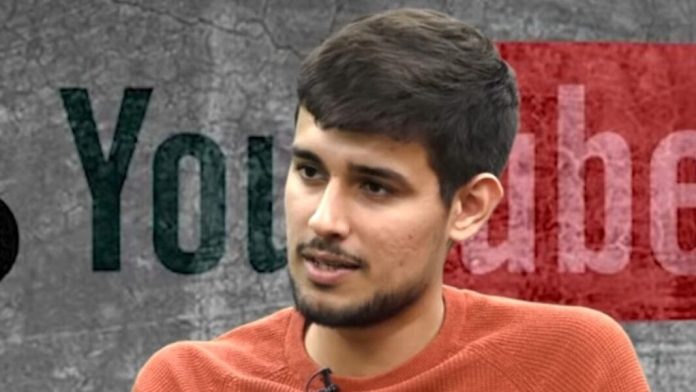New Delhi, Aug 29: Influential YouTuber Dhruv Rathee has sharply criticized the Uttar Pradesh government’s new social media policy, accusing it of promoting “legalized bribery” by offering substantial payments to social media influencers for endorsing government schemes.
As reported by The Free Press Journal, the policy allows influencers to earn up to ₹8 lakh for promoting government initiatives on various platforms, including YouTube, X (formerly Twitter), Facebook, and Instagram. Influencers will be categorized based on their number of followers, and payments will vary depending on the platform, with YouTube influencers set to earn between ₹4 lakh and ₹8 lakh per month. The caps for influencers on other platforms are ₹5 lakh for X, ₹4 lakh for Facebook, ₹3 lakh for Instagram, and ₹2 lakh for smaller platforms.
Rathee, known for his outspoken criticism of the BJP-led administration, expressed his outrage on social media, accusing the Uttar Pradesh government of using public funds to pay influencers for spreading its narrative. He urged influencers to reject these offers and suggested that those who accept such payments should be publicly shamed. “This is nothing more than legalized bribery,” Rathee stated, emphasising that the money comes from taxpayers’ pockets.
The new policy has drawn widespread criticism from opposition parties and internet users alike. It also includes controversial provisions that allow the government to take action against influencers who post content deemed “anti-social,” “anti-national,” or “derogatory.” This has sparked concerns over potential restrictions on free speech.
As per the report, Rathee, who has a large online presence with over 24 million subscribers on YouTube, 2.8 million followers on X, and more than 12 million followers on Instagram, is one of the many voices opposing the policy. He called on the influencer community to resist becoming tools for political propaganda funded by taxpayers.
The new social media policy of the Uttar Pradesh government has initiated a fresh debate on the ethical use of public funds and the influence of social media on political narratives. The backlash has raised questions about the line between genuine promotion and paid propaganda.




